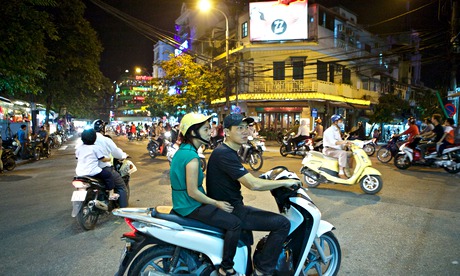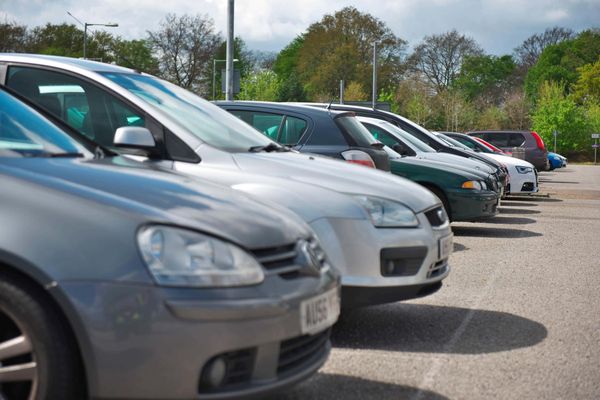
Although two-thirds of Vietnam’s population live in rural areas, its two major cities, Hanoi and Ho Chi Minh City, are increasingly choked by traffic and pollution. By some estimates, Hanoi is the most polluted city in south-east Asia, with concentrations of carcinogenic particles often measuring twice the recognised safe levels. The pollution is made worse by a huge annual increase in numbers of cars and motorcycles, while public transport remains inadequate. “Ride-sharing is a very new concept, not only in Vietnam but also in Japan, China, Korea,” says Nam Nguyen, founder and chief executive of Di Chung, a Hanoi-based ride-sharing website that received a Seed award in 2013.
In the three years since Di Chung’s creation, Nam has run up against various daunting obstacles, not least the hesitancy of the public to accept ride-sharing: “At first I tried to learn the model from European platforms like carpooling.co.uk and BlaBlaCar, but it doesn’t easily work here. We are not as open with strangers as Europeans are.” Private vehicles are a source of pride for many Vietnamese urbanites, who consider cars indicators of success and rely on them to visit their families in the provinces.
Faced with these challenges, Nam’s ambition grew. “In the beginning I intended to make a free network where people could share vehicles and contribute to protecting the environment,” he says, “but I realised I must form a business model to build it up.” Nam quit his banking job in 2014 and designed another arm of Di Chung: a taxi-sharing service whose profits could support the social enterprise he initially imagined. “That’s our main revenue stream now, it’s a business solution to contribute to a social issue.”
This profitable sideline has allowed Di Chung’s ride-sharing network to continue to grow, amassing 30,000 members and counting, though Nam confesses that he has staked much of his own money to keep the vision alive.
“In emerging countries like Vietnam you cannot depend on government support,” he says, “and with limited resources, to turn a very new concept into an easy service for people to accept is not easy.” He is envious of the UK government’s support for social enterprise, and hopes that, with the help of accolades like the Seed award, he will be able to campaign in future for parking discounts and insurance breaks for ride sharers.
In the meantime, his confidence remains undented: There are plans for a student-specific wing of Di Chung, tailored to individual universities, and Nam has already visited Indonesia and the Philippines with a view to extending his template beyond Vietnam. Most importantly, he hopes to extend his membership and acclimatise Vietnamese commuters to the idea of Di Chung as a “convenient and environment-friendly” alternative to private transport. “It might take three or four more years, but we don’t want to live in a dirty city any more.”







